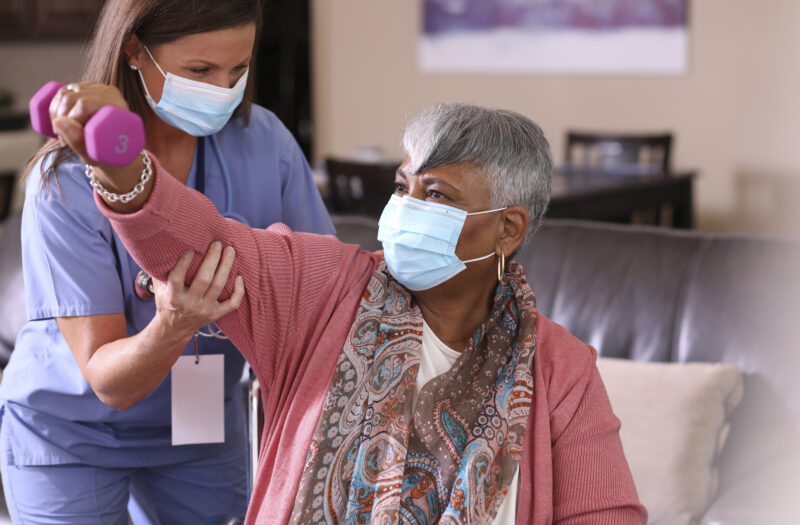Key Takeaways
- Many Black rheumatoid arthritis patients are not utilizing rehabilitation (such as physical therapy), perhaps due to lack of access, which can lead to higher rates of disability.
- More research is needed to examine barriers to accessing rehabilitation for patients with RA.
If your goal is to control rheumatoid arthritis (RA) disease activity, taking disease-modifying medication (including traditional DMARDs and/or biologics) as prescribed is certainly your most important move. But for RA patients who are concerned about their continued ability to perform daily activities, using rehabilitation services may also be important.
Unfortunately, research shows that many people with RA are not utilizing rehab, including physical therapy and occupational therapy. Black patients are more likely to not use rehabilitation services, although more research is needed to identify the types of barriers associated with this. Studies have shown that rates of rehabilitation program attendance among people with musculoskeletal problems like arthritis tend to be low across the board. They’ve also shown that Black and Hispanic people are less likely to participate due to lack of access.
Now a new study confirms that rehabilitation participation is particularly low among Black RA patients, and that this may leave people vulnerable to higher rates of disability.
How the Study Worked
This study, which was published in Arthritis Care & Research, focused solely on Black rheumatoid arthritis patients. The authors wanted to determine whether the use of rehabilitation was associated with disease activity or disability.
The researchers analyzed data from an ongoing patient registry that included more than 1,000 Black rheumatoid arthritis patients from Alabama, Georgia, South Carolina, North Carolina, and Missouri. Approximately 14 percent of people had reported using physical or occupational therapy in the prior six months, while more than 40 percent said they had tried it at some point in their life, but not recently.
Surprisingly, there was no apparent link between disease activity — as measured by disease activity measures like DAS28 score and C-reactive protein level — and rehab attendance (or lack thereof). However, those who had recently participated in physical or occupational therapy were significantly less likely to report disability and limitations that interfered with their daily life. This link was strongest for those who had been living with RA for a while (versus being recently diagnosed).
“Future research must consider barriers to accessing rehabilitation and advance approaches to integrating rehabilitation into routine RA care in the United States to preserve function and delay disability in adults with RA,” the authors urged.
Be Part of Research with ArthritisPower
Join CreakyJoints’ patient-centered research registry and participate in voluntary studies about managing arthritis. Learn more and sign up here.
Thoma LM, et al. Association of disease activity and disability with rehabilitation utilization in African Americans with rheumatoid arthritis. Arthritis Care & Research. September 2021. doi: https://doi.org/10.1002/acr.24797.






